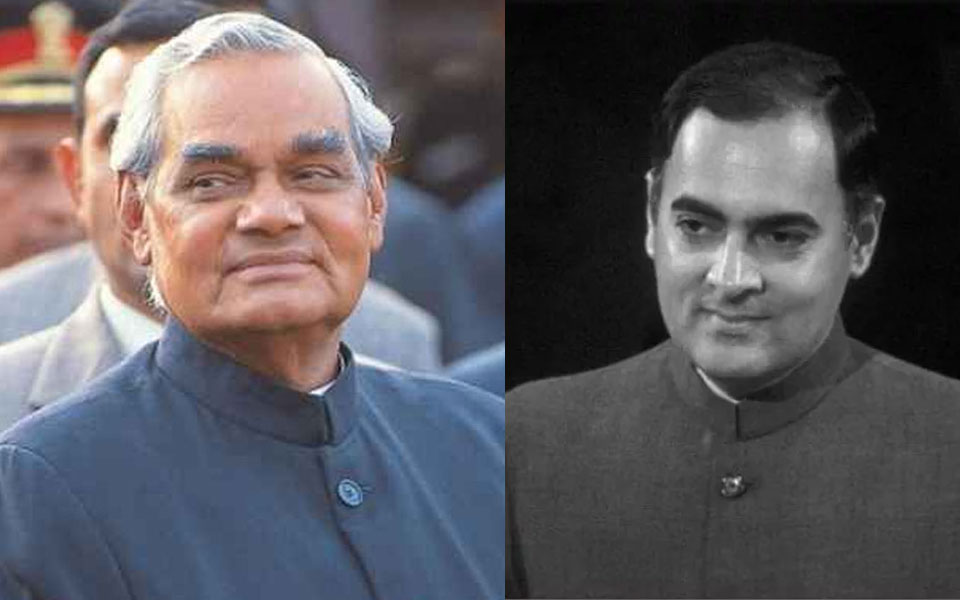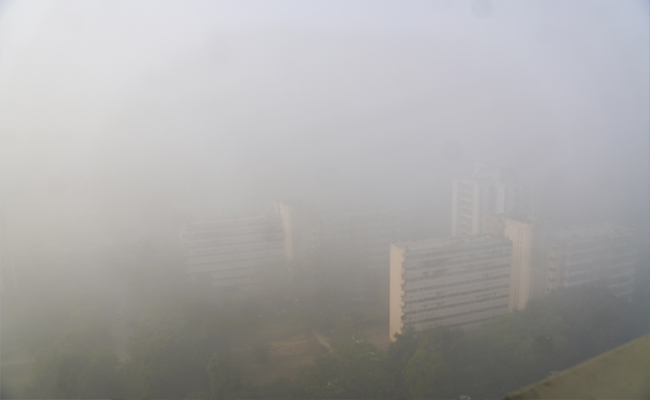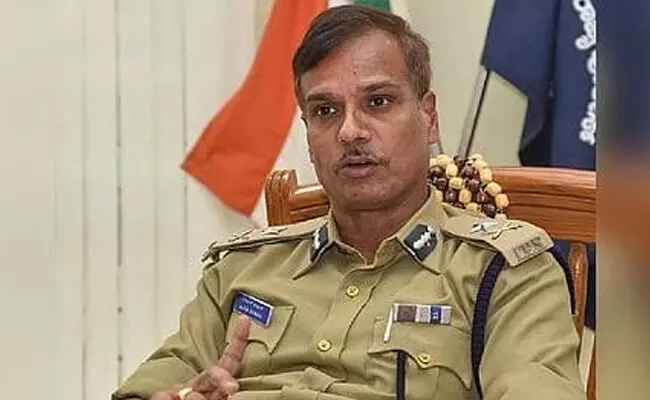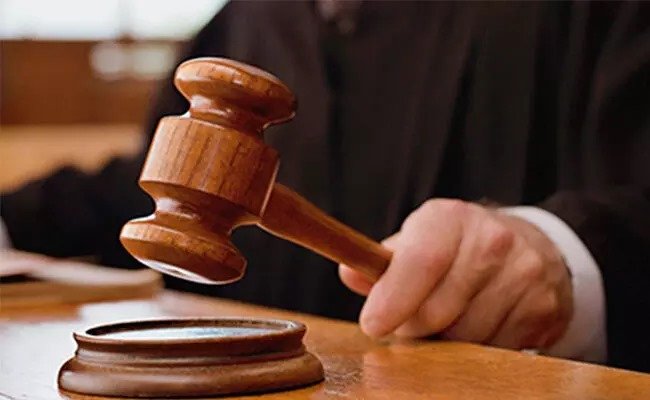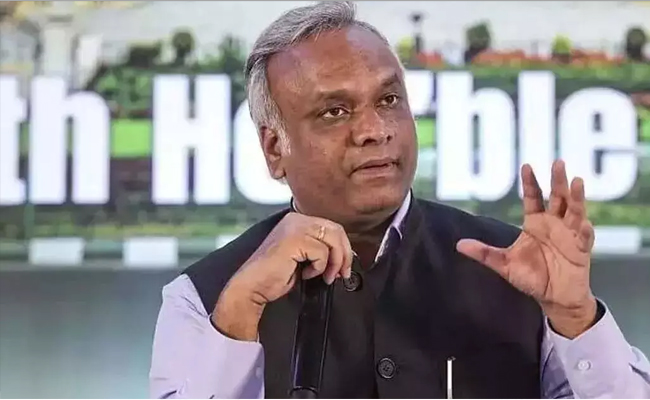NEW DELHI: Former prime minister Atal Bihari Vajpayee, who died on Thursday, was admired and respected across the political spectrum. Congress leader Rajiv Gandhi, who was known to take on BJP leaders sharply in parliament, made an exception for Atal Bihari Vajpayee, to whom he was always courteous.
Their rapport was exemplary and serves as an example of bonding beyond political differences, something that is rare in today's politics, many believe.
Mr Vajpayee revealed how Rajiv Gandhi, as prime minister, helped him go to the US for kidney treatment. An account is given in the book "The Untold Vajpayee: Politician and Paradox" by Ullekh NP.
On learning of his ailment, Rajiv Gandhi called Atal Bihari Vajpayee to his office.
The book quotes Atal Bihari Vajpayee as saying: "When Rajiv Gandhi was the Prime Minister, he somehow found out I had a kidney problem and need treatment abroad. One day he called me to his office and said he was going to include me in India's delegation to the UN and hoped I would use the opportunity to get the treatment I needed. I went to New York and that is one reason I am alive today".
Rajiv Gandhi, who was prime minister of India from 1984 to 1989, reportedly said he had told his officials that the BJP leader should return only when his treatment was complete. Atal Bihari Vajpayee was then leader of opposition.
Atal Bihari Vajpayee shared the story with senior journalist Karan Thapar after Rajiv Gandhi's assassination in 1991 by a female suicide bomber.
He said despite being his opponent, he could not speak like one and only wanted to "talk about what he did for me".
courtesy : ndtv.com
Let the Truth be known. If you read VB and like VB, please be a VB Supporter and Help us deliver the Truth to one and all.
New Delhi (PTI): Dense fog disrupted flight operations at Delhi Airport on Monday, with various airlines cancelling 228 flights and diverting five to nearby airports due to low visibility, an official said.
However, except for Air India, which had in an X post in the morning announced the cancellation of some 40 flights, no other airlines, including crisis-hit IndiGo, shared the numbers of their cancelled or delayed flights.
"As many as 228 flights -- 131 departures and 97 arrivals-- have been cancelled due to low visibility, so far," the airport official said.
In addition to this, five flights have been diverted so far, he said.
Earlier, the Delhi International Airport Ltd (DIAL), in a statement, said, "Our on-ground officials are working closely with all stakeholders to assist passengers and provide necessary support across Terminals.
"Low visibility (below minima), due to dense fog, has severely impacted operations at Delhi and other airports across northern India, which is unfortunately beyond our control," IndiGo said in a statement.
As operations are adjusted to prevailing weather conditions, some flights may experience delays, while a few others may be proactively cancelled during the day to prioritise safety and minimise extended waiting at the airport, the airline said in a statement.
IndiGo, however, did not say how many of its flights were cancelled or delayed.
The airline said its teams are "closely monitoring" the situation and coordinating with Delhi airport.
ALSO READ: Messi's Delhi arrival delayed as fog disrupts flight
IndiGo also said it issued advisories to its customers and "proactively" informing them, to minimise inconvenience.
“Poor visibility due to dense fog in Delhi this morning has impacted flight operations for all airlines. We are closely monitoring conditions and will resume operations as soon as it is safe to do so,” Air India said in a post on X in the morning.
It also said that some flights have been cancelled In the interest of safety, and to avoid prolonged uncertainty for the guests, while listing out some 40 arrivals and departures that it had cancelled for the day.
Delhi airport is the country's busiest, handling around 1,300 flight movements daily.

